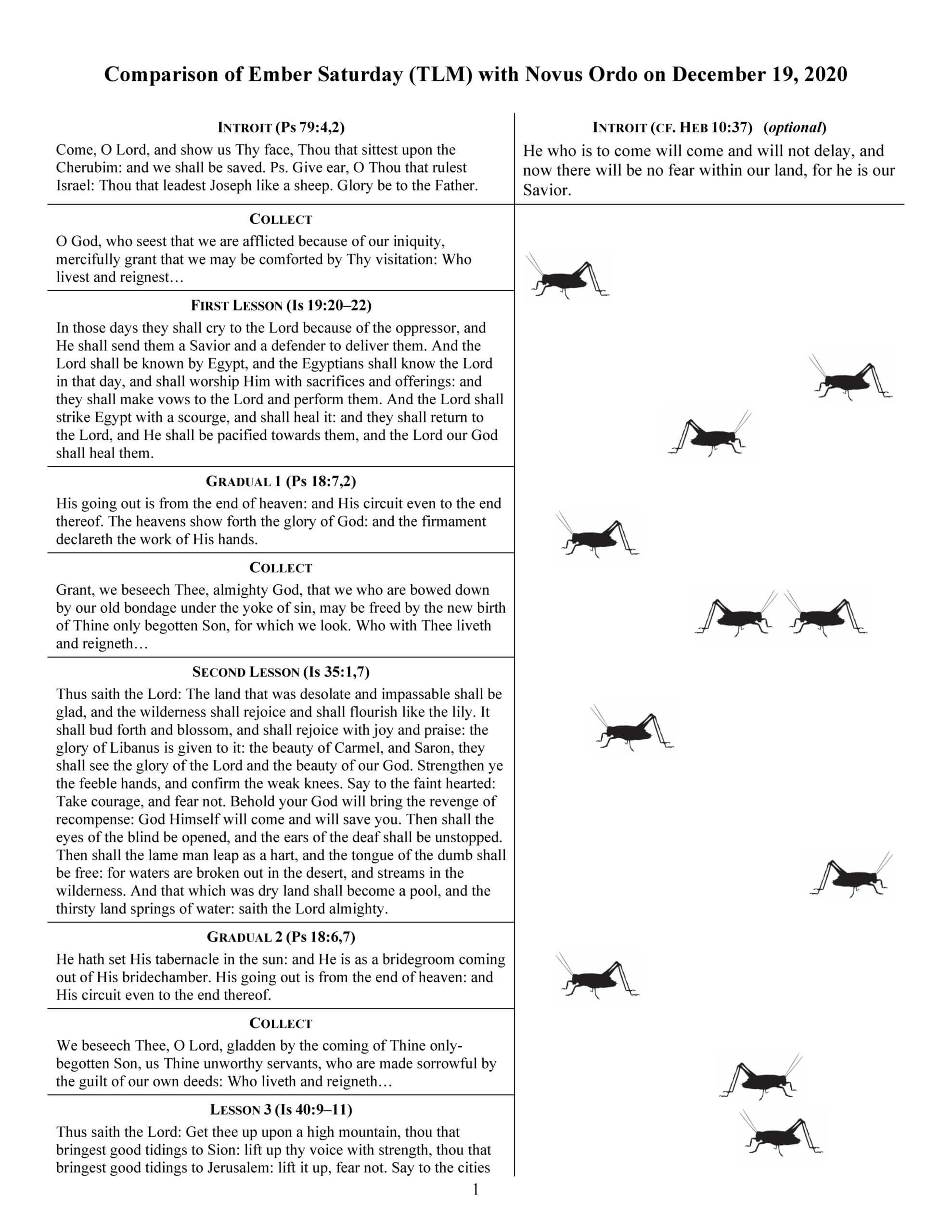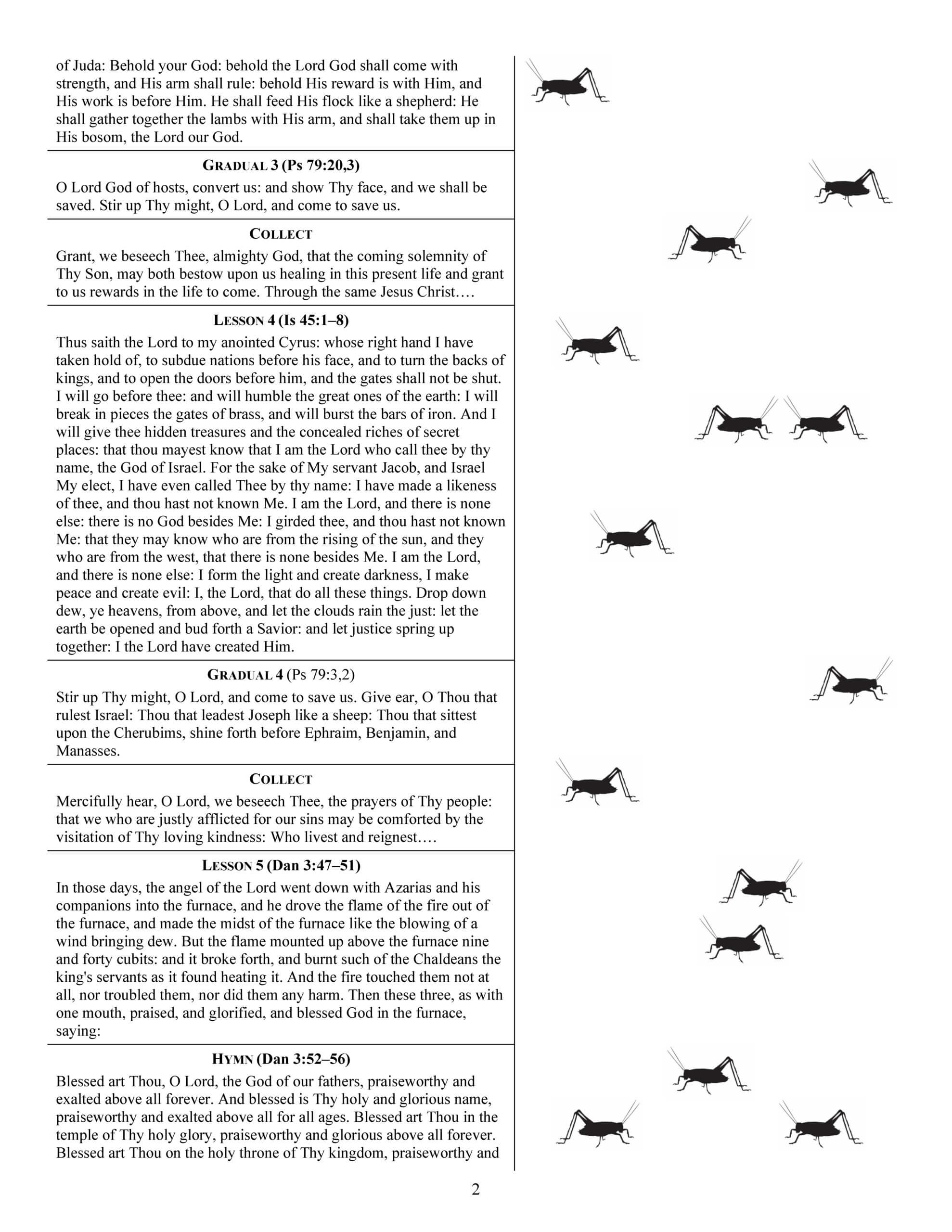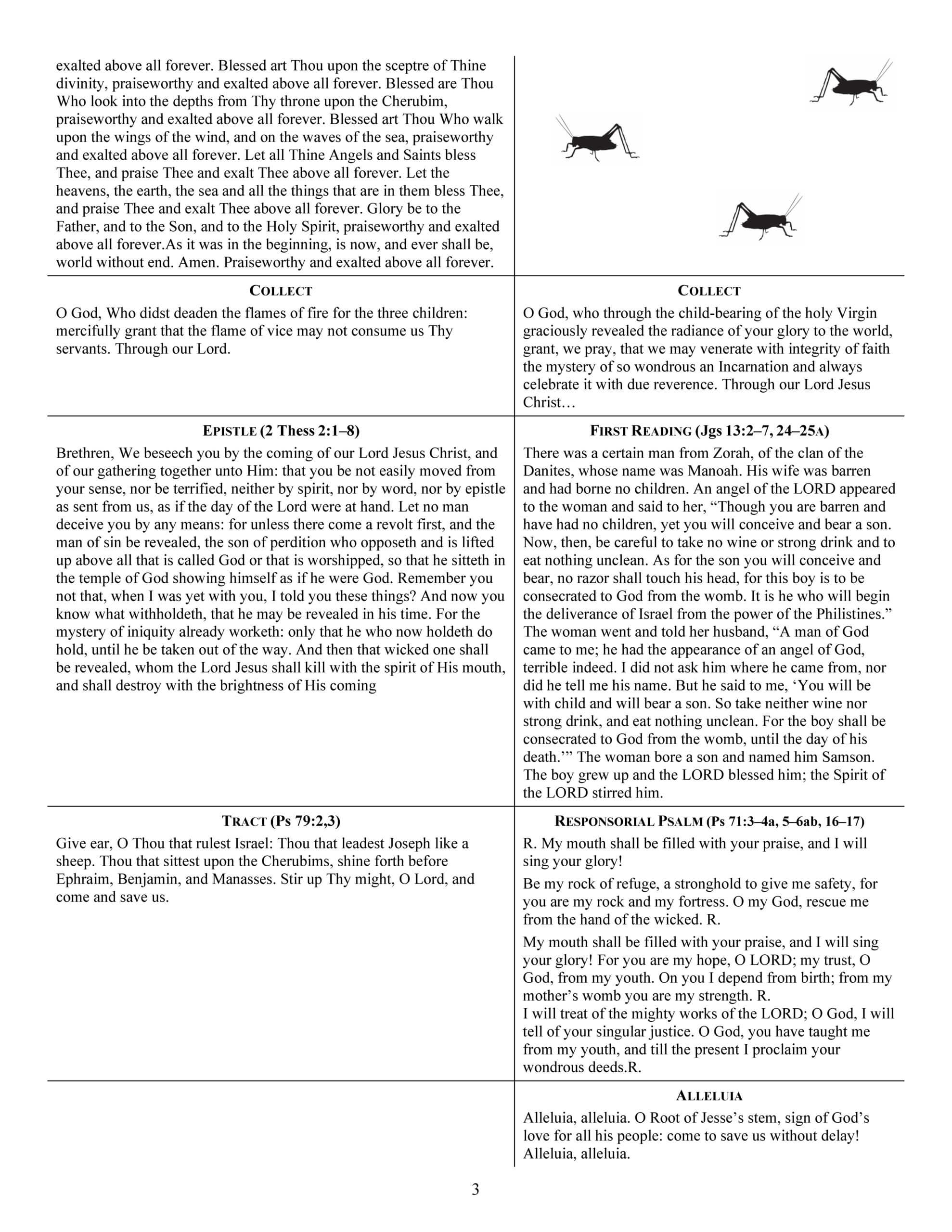Above: Greek icon depicting Christ with the Winnowing Fan from an Orthodox monastery in Arizona, United States. Photo by Fr. Lawrence, OP.
This coming Saturday will be the third of the Advent Ember Days in the Roman Rite. (As always, the Ember Days come in threes: Wednesday, Friday, and Saturday, the ancient penitential rhythm.)
The proponents of the liturgical reform can hardly write or say one paragraph without mentioning the new lectionary with its “far vaster selection of Scripture.” Here is not the place to go into the new lectionary’s prodigious deficiencies—something I have done in many lectures and articles over the years (see here for a partial list, and here for a more recent talk). But one basic point we might want to note is that a regimented march through giant portions of Scripture in the Eucharistic liturgy was never a desideratum or a practice in any liturgical tradition known to man. In contrast to the Divine Office, the readings for the Mass were chosen for their suitability for times and seasons and feasts of the year, and the number, length, and nature of them varied accordingly.
The Ember Saturdays are among those rare days when the traditional Latin Mass has a far greater number of readings than the Novus Ordo ever has, apart from the Easter Vigil. The very “leanness” of the usual Epistle/Gospel combination (with a pithy Gradual/Alleluia in between) makes the Ember Saturday readings and prayers appear like a lavish banquet. And when they are sung in the ancient chant tones, then all the glory shines forth!
If you have any influence over your local priest, please respectfully urge him to do all of the readings rather than the “short form,” a despairing concept that had already crept into the 1962 missal.
A couple of years ago, when there was a Saturday morning Missa cantata at the cathedral parish in my city—this was before its newly-appointed pastor, citing Traditionis Custodes, put the axe to the root of that flourishing act of divine worship—I had the immense privilege of singing all of the proper chants of the Ember Saturday of Advent. Such a thing is not common fare even today, when sung Masses and solemn Masses have become rather plentiful in comparison to past decades.
When singing the hymn from the Book of Daniel, with its proclamation of pure praise cast in an arching noble refrain, I felt as if I were a tiny voice absorbed by a 3,000-year tradition of prayer, beginning with the Jews, lasting through their captivity and inherited by the Church—a voice singing a hymn of exile well suited, once again, to be sung in our modern political and ecclesiastical captivity.
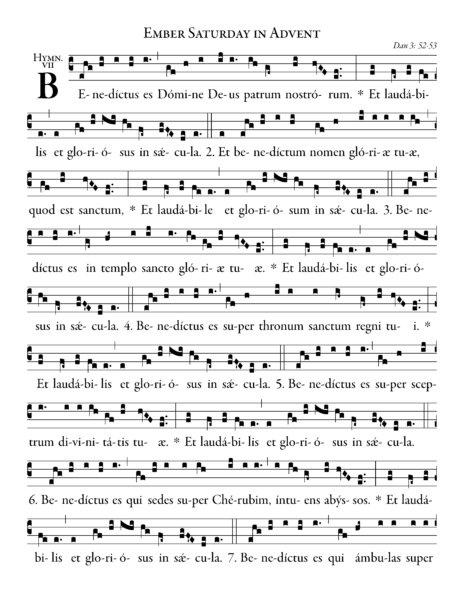
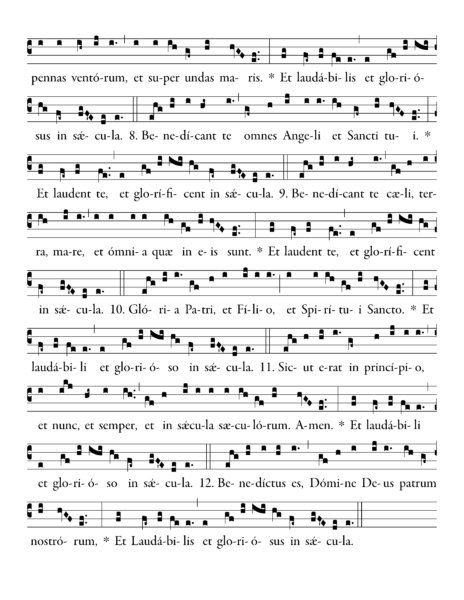 Here is a translation of the hymn:
Here is a translation of the hymn:
1. Blessed art Thou, O Lord, the God of our fathers, praiseworthy and exalted above all forever.
2. And blessed is Thy holy and glorious name, praiseworthy and exalted above all for all ages.
3. Blessed art Thou in the temple of Thy holy glory, praiseworthy and glorious above all forever.
4. Blessed art Thou on the holy throne of Thy kingdom, praiseworthy and exalted above all forever.
5. Blessed art Thou upon the sceptre of Thy divinity, praiseworthy and exalted above all forever.
6. Blessed are Thou Who look into the depths from Thy throne upon the Cherubim, praiseworthy and exalted above all forever.
7. Blessed art Thou Who walk upon the wings of the wind, and on the waves of the sea, praiseworthy and exalted above all forever.
8. Let all Thine Angels and Saints bless Thee, and praise Thee and exalt Thee above all forever.
9. Let the heavens, the earth, the sea and all the things that are in them bless Thee, and praise Thee and exalt Thee above all forever.
10. Glory be to the Father, and to the Son, and to the Holy Spirit, praiseworthy and exalted above all forever.
11. As it was in the beginning, is now, and ever shall be, world without end. Amen. Praiseworthy and exalted above all forever.
Singing these exultant words, I felt at one with Daniel and his Babylonian exiles. We belong to the same Israel he does, or rather, he belonged by faith to the Israel of God. Why is it that the Old Testament seems to come so vibrantly alive in the traditional Latin Mass? I have that impression more and more over the years, and others have shared the same with me. It really is the cultic continuation of tabernacle and temple worship, in the true temple that is the glorified Body of Christ. It is the one worship of the People of God, without any jarring absolute ruptures or embarrassed suppressions between past and present and the world to come.
All of the chants of the day—the mode 2 Graduals (four of them—we’re obviously in no hurry to get out of church on a penitential day!), the mode 7 hymn from Daniel, the mode 8 Tract—are magnificent in their texts and melodies. One could meditate forever on the appropriateness and majesty of these Propers, coming right when they do, in the third week of Advent, as we prepare to sing tomorrow: “Rorate caeli desuper…!” Drop down, ye heavens, from above, and let the skies pour down righteousness. The Church in her bridal ardor uses the imperative: she tells God He must come and save her. Not for any merits of her own, but solely by His own righteousness, to “get glory for His Name” as the Old Testament says.
Most striking to me were the series of penitential collects and the sequence of prophecies from Isaiah.
I decided, after Mass that day, to do a quick comparison between the Roman Rite and the modern rite of Paul VI, taking the texts specified in the latter for that particular December 19 (this year the details would be different but the overall effect would be identical). The contrast is breathtaking, particularly in the ascetical doctrine expressed in the prayers—that we are afflicted for our iniquities; that we are bowed down by our sins; that we are sad and unworthy; and that we can be delivered from these afflictions only by the visitation of Christ—and the elevated tenor of the lessons, which build upon one another in a mighty crescendo. Have a look at this comparison:
I couldn’t resist inviting the crickets. Andrea Grillo would no doubt approve; I’ll bet he agrees with the global resetters who think the human race should subsist in the future on crickets rather than traditional meats. No thanks. As for me and my house, we will serve meats, as rare as can be—when, that is, we are not abstaining and fasting in line with the traditional calendar.


